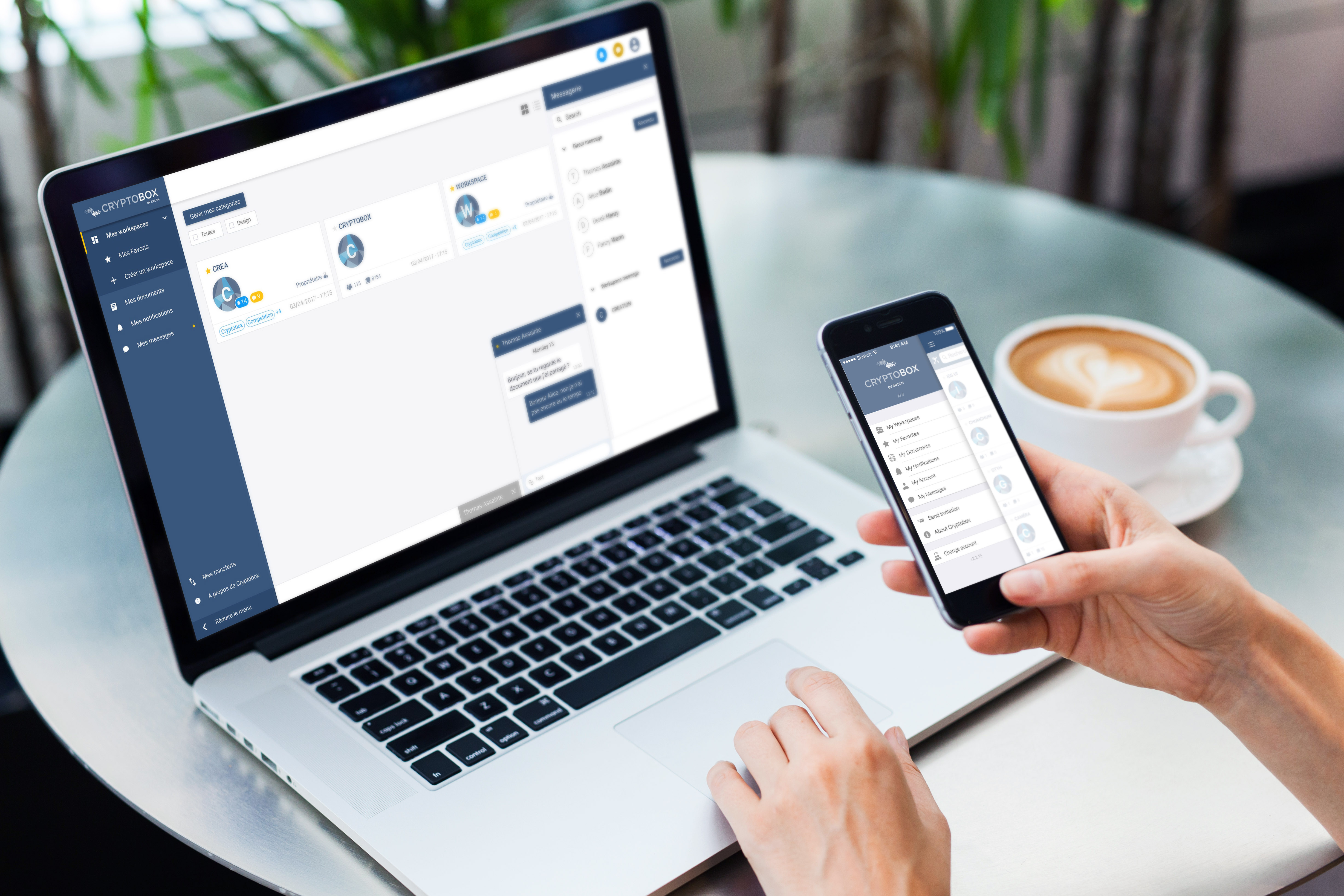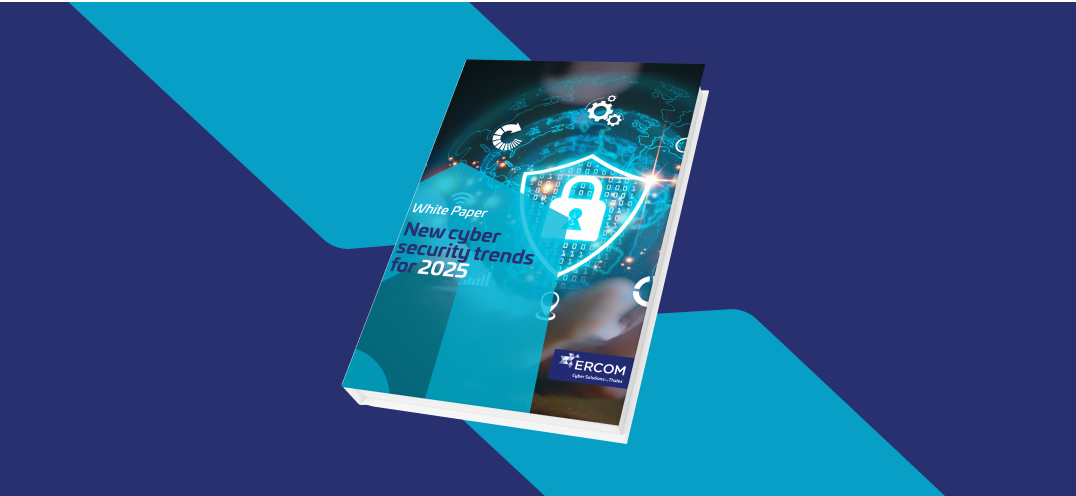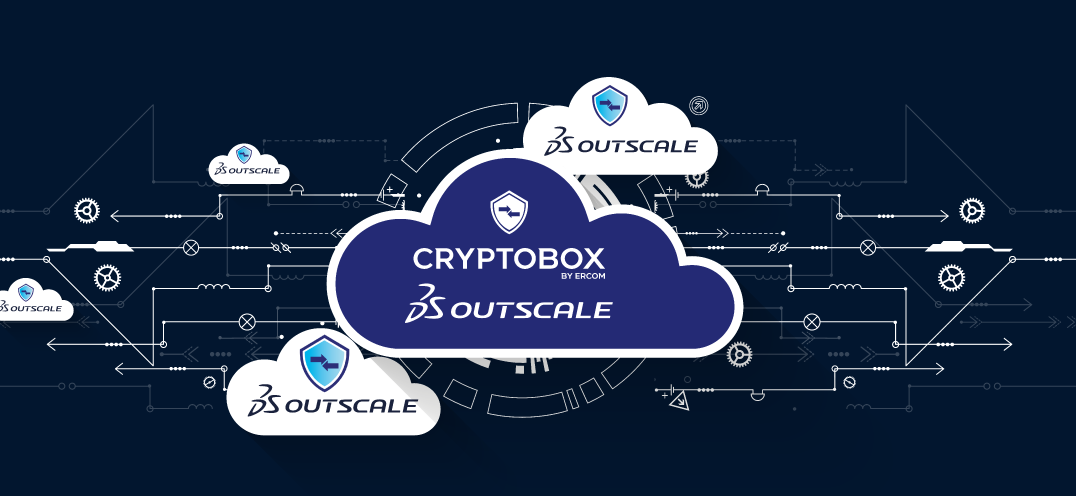Securing and simplifying data and file sharing with external parties
Learn in this article, how to secure and simplify data and file sharing with external parties:
Sharing data and files with external parties presents many challenges, especially when it comes to the security of sensitive data. With the rise of digital transformation, organisations are increasingly required to collaborate and exchange information with third parties, whether business partners, customers, or other external entities. Finding secure solutions to protect sensitive information while facilitating collaboration is essential.
Risk assessment
Threats linked to sharing data with external parties have become increasingly complex and sophisticated, amplifying the risks for organisations that need to protect their sensitive information.
Cyber-attacks are constantly evolving, with techniques such as ransomware, malware and phishing becoming increasingly sophisticated. These attacks can compromise data when shared with third parties, jeopardising the confidentiality and integrity of information. The growing use of artificial intelligence (AI) in cyber-attacks is also a major threat. Attackers can exploit AI to develop more effective attack strategies that are difficult to detect, jeopardising the security of shared data.
In addition, zero-day vulnerabilities refer to security flaws in software, hardware, or firmware, which are not known to their vendors until directly reported to them or disclosed to the public. They represent a significant risk, as they enable attackers to take advantage of undiscovered security flaws to infiltrate systems and gain access to shared data. Finally, organisations must also be wary of insider threats, such as malicious or negligent employees, who may accidentally or deliberately compromise the security of shared data.
In the event of a data security breach, consequences can be serious. According to a report by the CNILcovering the period from May 2018 to May 2023, 17,483 data breaches have been reported over these five years. This figure has been rising steadily over the years.
Over half (55%) of these breaches mostly result from ransomware attacks, followed by phishing attempts. These are usually precursors to other intrusions, either on the same system or on systems belonging to other data controllers.
The public sector is shown to be more vulnerable to phishing while the private sector is mainly targeted by ransomware.
Financial losses stemming from data breaches or regulatory fines can be a consequence of this lack of security. A security breach can also result in significant damage to an organisation’s reputation, which can undermine its credibility and trust among customers and business partners.
In short, the consequences of a data breach go far beyond the financial aspects, also affecting the confidence of stakeholders and the long-term viability of their organisation.
Principles of security
Knowing the principles of security is fundamental for ensuring data is protected when shared with third parties. The least privilege principle recommends limiting access to data to authorised individuals only and granting them access rights that are strictly necessary to their role. This reduces the risk of misuse or unauthorised disclosure of sensitive information.
End-to-end data encryption is another key principle, protecting sensitive data by encrypting it before it is shared. This ensures that even if data is intercepted during transmission or stored on unsecured servers, it remains unreadable without the appropriate decryption key, strengthening the confidentiality and security of the information exchanged.
Multi Factor Authentication (MFA) is also essential for verifying user identity and preventing unauthorised access to data. By using robust authentication methods such as MFA, complex passwords, single-use authentication tokens, or biometric technologies, organisations can ensure that only legitimate users have access to sensitive data, thus reinforcing security when sharing their data.
By implementing these security principles, organisations can significantly reduce risks when sharing data with external parties, while ensuring the confidentiality, integrity, and availability of the information exchanged.
Secure file sharing solutions
Secure file sharing solutions are indispensable tools when sharing data with external parties. They also simplify the sharing process while ensuring regulatory compliance and reducing the risks associated with unauthorised disclosure of sensitive data.
A “Zero Trust” architecture is another crucial approach to data security. By adopting this concept, organisations no longer blindly trust users, devices, or internal networks, but check each access request against various factors, such as user identity and device security. This considerably enhances system security and reduces the risk of data being compromised when shared with third parties.
By integrating secure file sharing solutions into their processes, organisations can effectively protect their sensitive data while facilitating efficient and secure collaboration with external partners, ensuring the confidentiality, integrity, and availability of exchanged information.
Cryptobox: The secure file-sharing and collaboration solution
Cryptobox is the ANSSI*-approved collaboration and file transfer solution with end-to-end data encryption. It is available for any environment:
- Cloud
- SecNumCloud 3.2
- On-premises
- Hybrid
Documents are securely accessible from your PC, smartphone, or tablet. The solution offers a wide range of security measures for sharing sensitive files. Key security measures include end-to-end encryption, access controls, and guest licensing to ensure that only authorised parties can access shared information.
The "Extended Collaboration" feature provides simple, secure, and efficient external collaboration, allowing every user to invite customers or partners to join Cryptobox (with a guest license). Guests will be able to create their own accounts and access all features, with a few restrictions. Users can create and share unique, secure deposit-box links, enabling recipients without an account to drop documents directly into the dedicated deposit-box in just one click. Receive documents securely, without limits, directly in your Cryptobox interface.
Data security and digital sovereignty have become key concerns for organisations today. This is why we were keen to expand our offering to include a new, secure, and sovereign deployment solution. Cryptobox is now available on the SecNumCloud 3.2 sovereign Cloud from 3DS OUTSCALE, a Dassault Systèmes brand. With this deployment offer, we enable public administrations, Organisations of Vital Importance, and Essential Service Operators to benefit from our solution in a highly controlled sovereign environment, recommended by ANSSI, the French national agency for information systems security, as well as the French government through its “Cloud first” doctrine.
OUTSCALE’s SecNumCloud 3.2-qualified public Cloud offering also meets the highest standards, based on ISO 27001-27017-27018, HDS, and CISPE, ensuring best practices in information security management, while adding new specific requirements recommended by the French government and commonly used by the French administration.
For further information, please contact us!
*Renewal in progress



